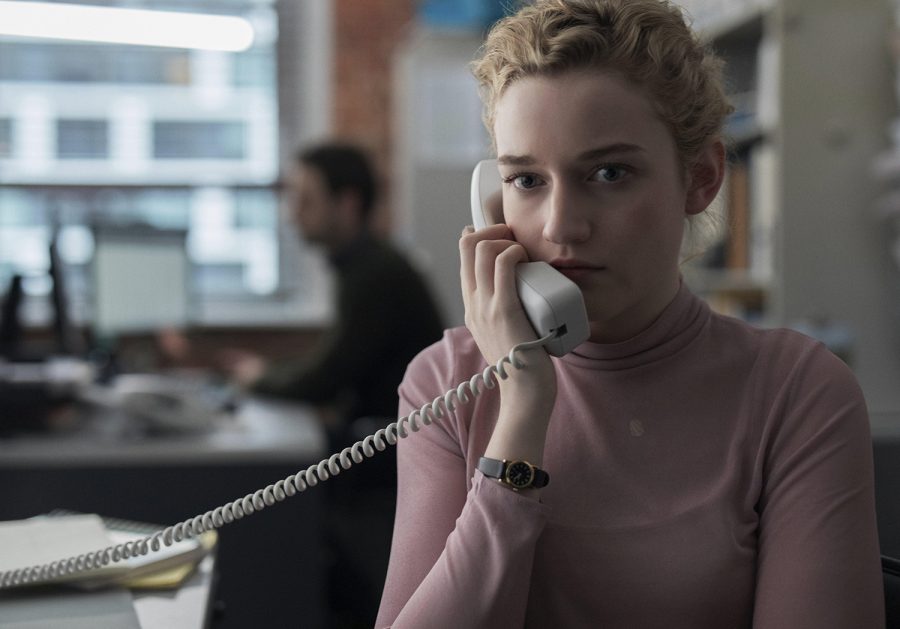Opinion: The Assistant masterfully brings a subtle look at #MeToo to the big screen
The drama film paints a haunting reality of powerful men and the workplace culture that preys upon women.
Julia Garner in a scene from The Assistant [Bleecker Street]
March 5, 2020
The very moment my jaw hit the floor in sync with the tears streaming down my face, I swore there had never been — nor ever will be — an essential viewing quite like Kitty Green’s The Assistant.
The entire movie consists of a single day in the life of an assistant to a powerful film executive. From dusk to dawn, Julie Garner’s character, Jane, walks the audience through making paper copies, ordering everyone’s lunch, and navigating an industry that has supported sexual predators and male dominance to this very day.
Green has spoken of the care that goes into making “a quiet film” when the “subject is very loud,” and she didn’t disappoint. Pulling the curtain on the environment of #MeToo, the power and rage of The Assistant lie within the subtle and accepted practices of not only Hollywood, but our entire patriarchal structure.
First, there are Jane’s male coworkers who throw wads of paper at her to get her attention. They task her with training the new female assistant and speaking with the boss’s wife because women are a waste of time. And they lean over her shoulder and tell her how she should word her emails to her boss, who has yet again asked her to apologize for things that were not her fault.
There are the jokes, the code of silence, and a cutthroat business where people would rather abuse women than lose their spot on the corporate ladder.
Then there’s the illumination of the culture that empowers people such as Harvey Weinstein. There are the jokes, the code of silence, and a cutthroat business where people would rather abuse women than lose their spot on the corporate ladder. The women look the other way. The men are envious.
And the couch is always cleaned before the day begins.
This very system forces survivors to feel ashamed and alone, demonstrated when Jane returns a sole earring to a woman whose mannerisms are of a person who desperately wants to confide in someone — but gets back on the elevator instead.
Lastly, the boss himself. The audience never sees him, but his presence is felt throughout every frame. He’s the crackling voice on the phone who yells at and manipulates Jane. He’s the email with the quick apology that says, “I’m only hard on you because I’m gonna make you great.”
He’s the shadow in the window with the incredibly talented actress who only wants the career she deserves.
In fact, the decision to keep the boss faceless is crucial because sexual harassment, assault, and the inequality of women is not just one man nor one industry. It lives within multiple facets of our society — an understood norm. As the one female employee states, “Don’t worry. She’ll get more out of it than he will.”
The Assistant will leave the viewer devastated, furious, and emboldened to combat a world that was built by harming others. This is not a look at our past, but one of the most relevant lenses into the underbelly of our society — and how we can make a difference through the “little” things.
Columns reflect the opinions of the authors and are not necessarily those of the Editorial Board, The Daily Iowan, or other organizations in which the author may be involved.


















